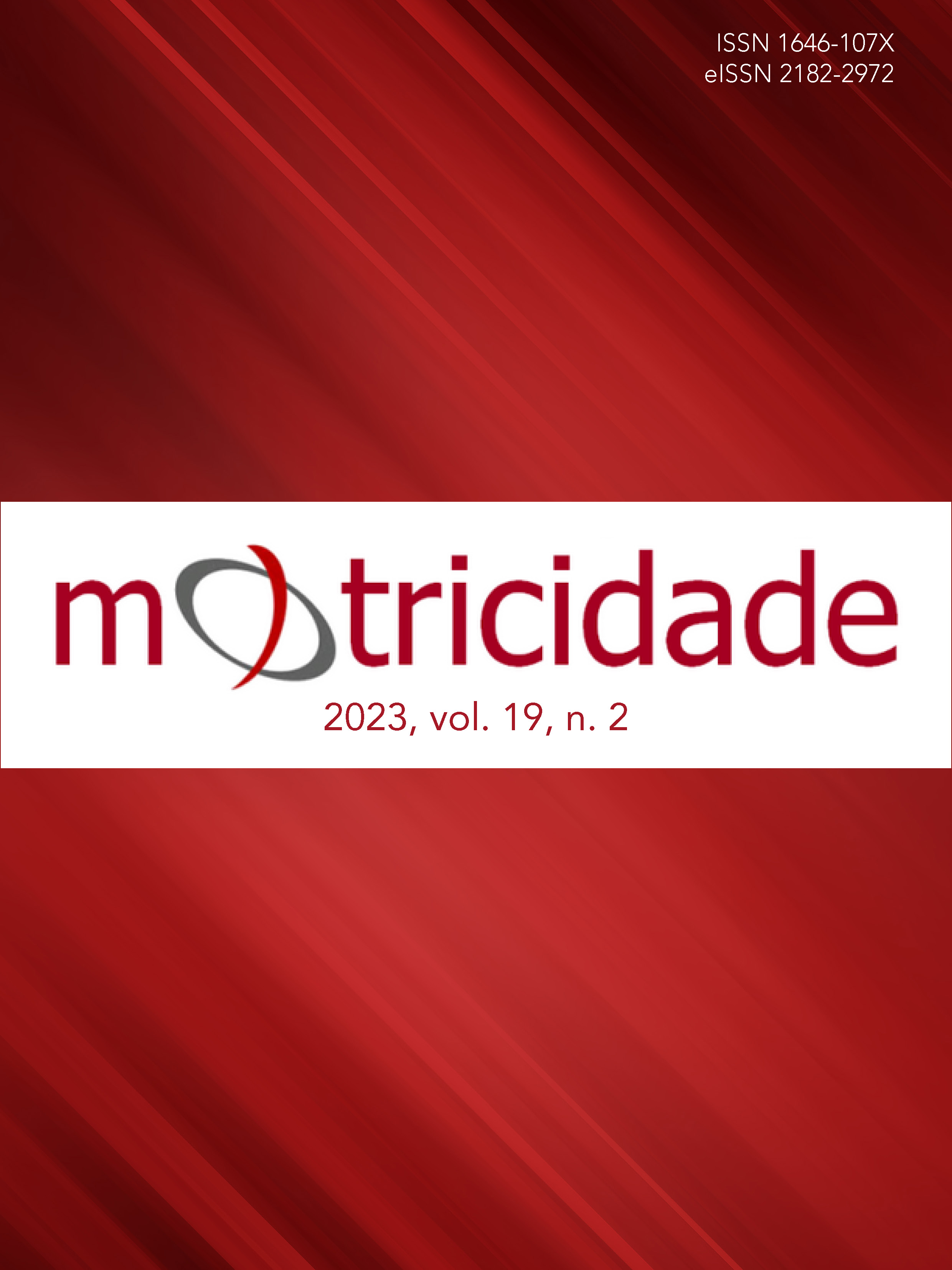Comparison of pre-competition mood state between winners and losers: a study with young beach volleyball athletes
DOI:
https://doi.org/10.6063/motricidade.23905Keywords:
Athletic Performance, Sport Psychology, Young AthletesAbstract
The present study aimed to compare the mood of young beach volleyball athletes according to the result of the match. Sixteen male athletes participated in the study (age = 17 ± 2.44 years). All were submitted to a simulated competition, following the official rules. Previously, the athletes responded (30 minutes before playing) to the Profile of Mood States (POMS), divided into the dimensions tension, depression, hostility, vigor, fatigue, and confusion. The data were compared using the Mann-Whitney U test, according to the result (winner and loser). The biserial correlation coefficient per point (Kendall's Tau) and determination (т-square) were calculated for the variables with a significant difference, adopting a 5% significance. Regardless of the result, the observed profile was iceberg characterised by high vigour and low in other dimensions. In addition, there was a significant difference only in the “confusion” dimension (Winner= 2.00 vs Loser= 5.50; U= 13.00; p= 0.043; d= 1.151). Additionally, the correlation and determination coefficient was т= 0.457 (p= 0.043) e т2= 0.208, respectively. Regardless of the result, the mood profile 30 minutes before the game was “iceberg”. Furthermore, the “confusion” subscale was identified as the main psychological performance indicator, explaining ~20% of the variation between winning and losing.
Downloads
Published
Issue
Section
License
The authors of submitted manuscripts must transfer the full copyright to Journal Motricidade / Sílabas Didáticas Editions. Granting copyright permission allows the publication and dissemination of the article in printed or electronic formats, and copyrights start at the moment the manuscript is accepted for publication. It also allows Journal Motricidade to use and commercialise the article in terms of licensing, lending or selling its content to indexation/abstracts databases and other entities.
According to the terms of the Creative Commons licence, authors may reproduce a reasonable number of copies for personal or professional purposes, but without any economic gain. SHERPA/RoMEO allows authors to post a final digital copy (post-printing version) of the article on their websites or on their institutions' scientific repository.


